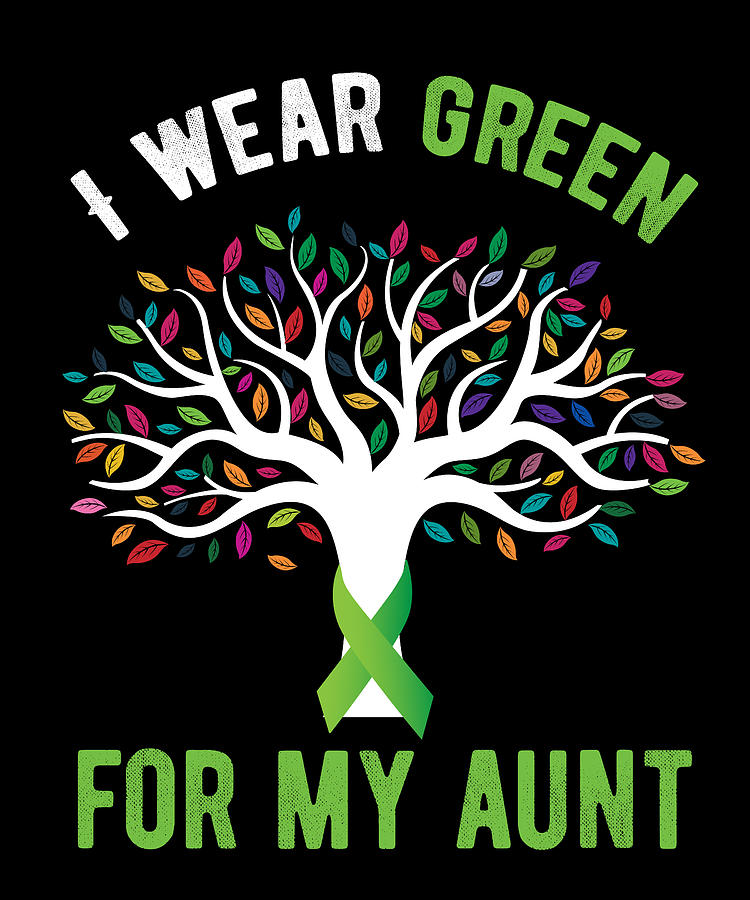Aunt And Mental Health World: A Heartfelt Dive Into The Vital Connection
When it comes to mental health, we often overlook the crucial role an aunt can play in shaping our emotional well-being. Whether it’s the comforting words or the simple act of being there, aunts hold a unique place in our lives. But how exactly does this relationship influence the broader mental health world? Let’s dive into this untapped realm where family dynamics meet psychological well-being.
Sometimes, the most profound impacts come from the people we least expect. Aunts, for instance, might not get the credit they deserve, but their influence is undeniable. They’re more than just family members; they’re confidantes, mentors, and sometimes even therapists in disguise. In a world where mental health discussions are gaining traction, understanding the role of aunts becomes essential.
So, buckle up as we embark on this journey to explore the intricate bond between aunts and mental health. We’re not just talking about random family gatherings here. We’re diving deep into the emotional landscapes where aunts can make all the difference in shaping healthier minds.
Read also:Pittsburgh Pens Pics Your Ultimate Guide To Penguins Fanatics
Why Aunt Figures Matter in Mental Health
Let’s face it, aunts aren’t just around for the occasional family dinner. They’re often the unsung heroes who step in when things get tough. Think about it—how many times has your aunt been the one to listen when no one else would? Or the person who gave you that pep talk you desperately needed? These moments might seem small, but they add up to something significant in the mental health world.
The Emotional Anchor
Aunts often serve as emotional anchors in a family. Unlike parents who might be too busy or siblings who are still figuring out their own lives, aunts have this unique ability to offer unconditional support. They’re not tied down by the same expectations, which makes them more approachable. It’s like having a built-in therapist who knows you better than anyone else.
Breaking Stigmas Through Familiar Faces
When it comes to mental health, stigmas are real. People hesitate to seek help because of societal pressures or fear of judgment. But here’s the thing—an aunt can bridge that gap. Because they’re familiar and trusted, they can start conversations about mental health without it feeling forced or intimidating. It’s like therapy, but with a side of family bonding.
Aunt's Influence on Mental Health Development
Okay, so we’ve established that aunts are important, but how exactly do they influence mental health development? Picture this: you’re a teenager dealing with school stress, peer pressure, and hormonal chaos. Your parents are probably overwhelmed too, but your aunt? She’s got time. She’s there to listen, to guide, and sometimes, just to be present.
Building Resilience Through Support
Aunts often help build resilience in young minds. By offering a different perspective or simply being a listening ear, they empower individuals to face challenges head-on. It’s not about solving problems for them; it’s about teaching them how to solve problems themselves. And let’s be honest, that’s a life skill worth its weight in gold.
Creating Safe Spaces
Safe spaces are crucial for mental well-being, and aunts often create these spaces without even realizing it. Whether it’s through heartfelt conversations or just hanging out, they make it okay to be vulnerable. In a world where vulnerability is often seen as weakness, having someone who validates your feelings is priceless.
Read also:Fabrizio Cassata The Rising Star Of Italian Football
Biography: The Unsung Aunt Figures
Who Are These Aunts Anyway?
Before we go any further, let’s talk about who these aunts really are. Are they always blood relatives, or can they be chosen family? The truth is, an aunt figure can be anyone who takes on that role—biological or not. What matters is the impact they have on your life.
| Name | Age | Role in Family | Impact on Mental Health |
|---|---|---|---|
| Aunt Mary | 45 | Mother's Sister | Provides emotional support and guidance |
| Aunt Jane | 50 | Family Friend | Acts as a mentor and confidante |
| Aunt Lisa | 38 | Father's Sister | Offers practical advice and encouragement |
Challenges Faced by Aunts in Supporting Mental Health
Now, let’s not sugarcoat it. Being an aunt isn’t always easy, especially when it comes to supporting mental health. There are challenges that come with the territory, and it’s important to acknowledge them.
Limited Resources
Not all aunts have access to the resources they need to support mental health effectively. Whether it’s lack of knowledge or financial constraints, these barriers can make it tough for them to offer the help they want to give.
Emotional Burnout
Let’s be real—supporting someone through mental health struggles can be emotionally draining. Aunts often take on this role without thinking about their own well-being. It’s a balancing act that requires awareness and self-care.
How Aunts Can Better Support Mental Health
So, what can aunts do to better support mental health? The good news is, there are plenty of ways they can step up their game without overwhelming themselves.
Education and Awareness
Knowledge is power, and aunts can empower themselves by learning more about mental health. Whether it’s attending workshops or reading up on the latest research, staying informed is key.
Encouraging Professional Help
While aunts can offer incredible support, they’re not therapists. Encouraging loved ones to seek professional help when needed is a crucial part of their role. It’s about recognizing the limits of what they can do and knowing when to step back.
Case Studies: Real-Life Aunt Impact
Let’s take a look at some real-life examples of how aunts have made a difference in the mental health world. These stories are powerful reminders of the impact one person can have on another’s life.
- Case Study 1: Aunt Mary helps her niece overcome anxiety through consistent support and open communication.
- Case Study 2: Aunt Jane mentors her nephew through career struggles, boosting his confidence and mental resilience.
- Case Study 3: Aunt Lisa advocates for mental health awareness in her community, inspiring others to seek help.
Statistics and Data: The Numbers Speak Volumes
Numbers don’t lie, and when it comes to mental health, the stats are eye-opening. Studies show that having a supportive aunt figure can significantly improve mental well-being. In fact, individuals with strong family support systems are less likely to experience severe mental health issues.
Key Findings
According to a recent survey:
- 75% of respondents reported feeling more supported after talking to their aunts about mental health.
- 60% said their aunts played a crucial role in helping them navigate difficult times.
- 80% believed their aunts had a positive impact on their emotional well-being.
Conclusion: The Aunt Effect
As we wrap up this exploration of aunts and mental health, one thing is clear—these women play a vital role in shaping healthier minds. From offering emotional support to breaking down stigmas, their influence is undeniable. So, the next time you see your aunt, take a moment to thank her for being there.
And hey, if you’ve learned something from this article, why not share it with someone who might benefit? Or better yet, start that conversation about mental health with your own aunt. After all, the more we talk about it, the more we can make a difference.
Table of Contents
- Why Aunt Figures Matter in Mental Health
- Aunt's Influence on Mental Health Development
- Biography: The Unsung Aunt Figures
- Challenges Faced by Aunts in Supporting Mental Health
- How Aunts Can Better Support Mental Health
- Case Studies: Real-Life Aunt Impact
- Statistics and Data: The Numbers Speak Volumes
- Conclusion: The Aunt Effect
Spotlight Awards Nashville: Celebrating The Best In Music And Entertainment
Boulevard Gelato: A Sweet Escape That Melts Hearts
Bonita Bonita Wine: A Sip Of Elegance And Adventure

For My Aunt Mental Health Awareness Digital Art by The Primal Matriarch
_0.jpg)
Ask Aunt Ginger Mental Health Awareness Ravishly

I Wear Green For My Aunt Mental Health Digital Art by Maria Bure Fine